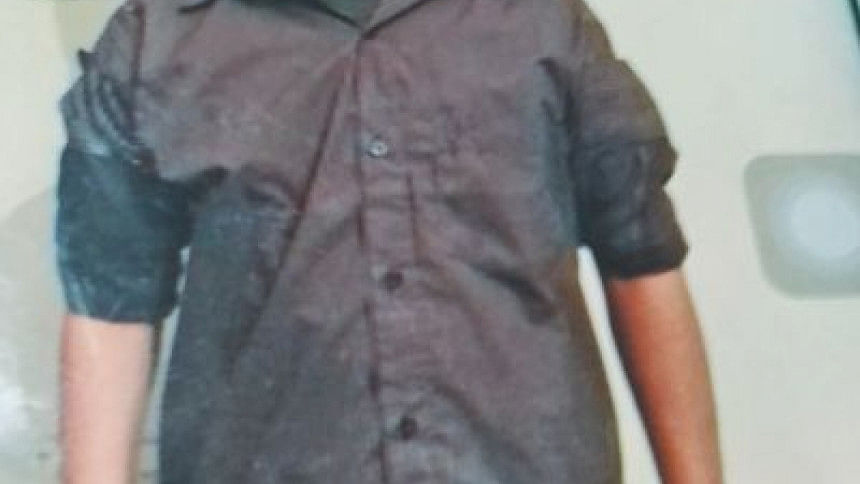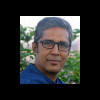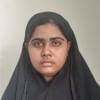He is India's worry too

Sohel Mahfuz, who had worked for about five years from 2009 to set up an extremist network in India's West Bengal, was planning to expand the activities of IS-inspired militant group “Neo JMB” to the neighbouring country.
He wanted to visit India by this year and open a wing of “Neo JMB”, counterterrorism officials said after interrogating him on remand.
Arrested in bordering Shibganj upazila of Chapainawabganj on July 8, Sohel is now on a seven-day remand in the Gulshan café attack case.
He allegedly supplied firearms and explosives for the café attack and is also one of the prime accused in the case over the 2014 Burdwan blast that left one Bangladeshi and one Indian militant dead inside a house. Indian police put Rs 10 lakh bounty on his head.
Sohel told the interrogators that he left India months after the Jama'atul Mujahideen Bangladesh (JMB) leadership removed him from the post of West Bengal JMB ameer and replaced him with Sajid, another Bangladesh-born militant, in 2014.
After his return to Bangladesh in December 2014, he got involved with pro-IS militants and played an important role in recruiting youths to the new brand of terror group, “Neo JMB” as police call it.
Md Moniruzzaman, assistant inspector general (confidential) at the police headquarters, told The Daily Star that a three-member team from a special taskforce of Kolkata police arrived in Dhaka yesterday and held a meeting with local officials.
They discussed how the top militant spread a militant network in both countries and carried out his activities in West Bengal and Assam during his stay in India.
The two sides shared information regarding operations of Bangladeshi militants in the two Indian states.
“During the meeting with the team, we also raised some issues, including arms and explosives smuggling from India into Bangladesh,” he said, adding the Indian officials assured Bangladesh side that they would look into the smuggling issue.
The Kolkata police team would stay in Bangladesh for the next couple of days.
Besides, a team of National Investigation Agency of India is supposed to arrive in Dhaka tomorrow to learn about Sohel's arrest, Moniruzzaman added.
INTERROGATION
"Sohel Mahfuz admitted meeting the Gulshan attackers, but he remained silent when asked if he took part in the attack," said a police officer of the Counter Terrorism and Transnational Crime (CTTC) unit of DMP.
Another CTTC official said Sohel divulged some pieces of information about his militant activities in both the countries but avoided answering many crucial questions.
Both the officials quizzed the arrestee on several occasions.
According to the interrogators, Sohel left his Kushtia village to join militancy in 2003 and later was nurtured under top militants like JMB's operational commander Siddiqul Islam aka Bangla Bhai and explosive expert “Boma” Mizan.
He first went to West Bengal in 2006 but returned after a few days. An Indian national named Ibrahim was heading a small unit of JMB there back then.
Over the next two years, Sohel worked to strengthen JMB in Chapainawabganj, Dinajpur and Natore through recruiting members.
Following a decision of the then JMB chief Saidur Rahman, now in jail, Sohel went to India towards the end of 2008. The next year, he replaced Ibrahim and took the helm of West Bengal JMB. He recruited over a hundred youths whom he trained at Shimulia Madrasa in Burdwan.
Being an explosives expert, Sohel trained many militants on how to prepare bombs, including improvised explosive devices (IEDs) which JMB operatives later used in various attacks and blasts.
About his involvement in “Neo JMB”, he told police that after he came back in late 2014, he met some JMB operatives who were attracted to the ideology of Islamic State.
Months before his return, the global terrorist group announced the establishment of a "caliphate" straddling Iraq and Syria, urging other groups to pledge allegiance, and declared Abu Bakr al-Baghdadi "the caliph" and "leader for Muslims everywhere".
“They [the JMB operatives] asked me to join their group and I agreed,” Sohel was quoted as saying by an interrogator.
He began working under the new platform and encouraged 20-25 other JMB operatives to join the group. He got 50 radicals as his followers from Chapainawabganj and Rajshahi.
According to police, Sohel was one of the planners of the country's deadliest terror incident that left 20 hostages, mostly foreigners, killed at the Holey Artisan Bakery in Gulshan's diplomatic zone on July 1 last year.
Regarding his terror network in West Bengal, he told police that he left India in 2014 but he continued to maintain communications with some JMB men there.
"Since Sohel has been involved in militancy for many years, we are getting vital information from him about JMB and Neo JMB and militant activities in both India and Bangladesh," said Ahmedul Islam, additional commissioner of CTTC.


 For all latest news, follow The Daily Star's Google News channel.
For all latest news, follow The Daily Star's Google News channel. 








Comments